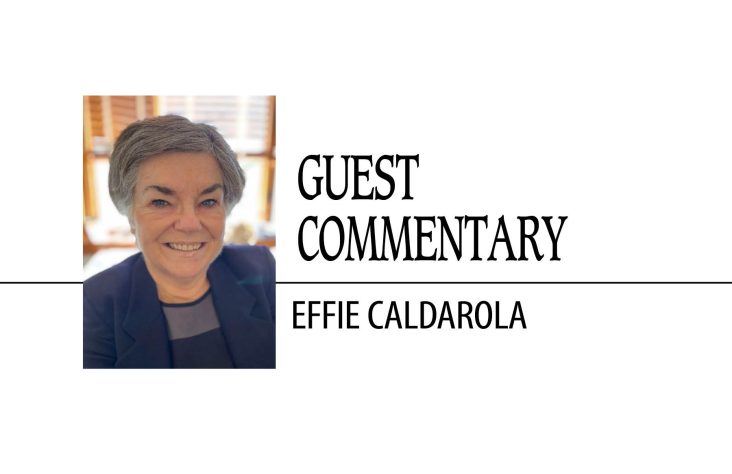June 8, 2016 // Uncategorized
The Catholic Doctor is in
Hallowed Moments
By Dr. David Kaminskas
About six months ago, I had a particularly unforgettable day in the office. The best part of being a doctor for me is the interaction I have with patients and their families. Very special things seem to happen behind that closed office door. It is likely that the one-on-one interaction with patients and our oath of confidentiality helps provide them with the courage and confidence to share their stories. In fact, sometimes I am asked to allow residents, medical students, or nurse practitioners in training to shadow me for a day so I can provide teaching. I know it is part of my calling to do this, but I also know that there is then very little chance that one of those hallowed moments will occur when other medical personel follow me into the room. On this particular day I had two unforgettable encounters.
One of them was a 94-year-old patient that I have seen for years. He had developed severe aortic valve stenosis (severe narrowing of the valve that opens as blood is pumped out of the heart). He is quite an amazing 94-year-old specimen, walking with confidence into the exam room. He now lives in an assisted living environment, not because he has to, but so he can be close to his wife. His wife is in the same building, but in the Alzheimer’s unit. She requires 24 hour care as she has very advanced dementia, and my patient has been told her health is rapidly deteriorating. She is expected to live a few more months at best. He travels down the long hallway to see his wife multiple times per day as he continues to follow his wedding vows: in sickness and in health.
He had noticed more shortness of breath with daily activities especially walking to see his wife. It was my obligation as his cardiologist to let him know his condition was getting serious and would progress. He asked me how long he had to live if we didn’t do something and I answered in my usual fashion; “No one knows about that day or hour…..but only the Father.” What I am willing to say when push comes to shove in these situations, is to give some sort of estimate or statistic. In his case I told him that if I had 100 people with aortic stenosis of his severity, the majority of those people would be dead in 1 year. I told him that if he wanted to try to live on we might be able to offer him a TAVR (Trans-Aortic Valve Replacement). I wrote an article about this amazing procedure, primarily used in the elderly, not too long ago right here. To date, the oldest patient we have done was 91 years old. I told him I was willing to talk to the TAVR team and see if they would consider him, but it is still considered a major procedure. There would be serious risks involved (even more so at age 94) including at least a 2-3% chance of death and a 5% chance of stroke. He then changed the subject and began talking about his wife and the wonderful marriage he had had for over 70 years. With tears in his eyes he told me he did not want to try to prolong his life with any heroic measures. I listened some more and became confident that not pursuing a possible operation was the right decision for him. We were both at peace as he left the office.
A few patients later, I saw an 81-year-old man with early dementia who was accompanied by a very loving daughter-in-law. I have followed this man for many years and even though he has dementia and significant short-term memory loss, he remains fairly insightful and can still make decisions for himself with a little guidance from his family. He has an abdominal aortic aneurysm (AAA) that we have been following for a few years, and it had grown to the size it could very well rupture in the next year. It was time to have that honest discussion and decide on a plan of action. I then discussed with him the risks and the benefits of having it fixed. He told me he did not want to go through the pain or the expense of having surgery. He explained to me that he had lost his wife a few years earlier, and without her companionship, he did not want to try to extend his life. He also still had the insight that with prolonging his life, he would live to experience worsening dementia, and his family would have to experience this with him as well. It is also true that operating on someone with dementia can acutely and sometimes even permanently cause progression of the dementia. With conviction he told me he would pass on any life-saving operation, and accept death when it came. His daughter-in-law was sure the family would be supportive of this decision as well.
I believe both of these men made the right decision considering their advanced age and circumstances. Sometimes it is appropriate to hang on to life for as long as you can, and other times it’s best to surrender to your Creator. Both of these men have placed their lives in the hands of God. They might live a good number of years yet, and as of this publication, they were both still very much alive. As it says in Deuteronomy 32:39 “Learn then that I, I alone, am God, and there is no God beside me. It is I who bring both death and life, I who inflict wounds and heal them, and from my hand there is no rescue.”
The best news. Delivered to your inbox.
Subscribe to our mailing list today.





